Practical ideas to help you reduce waste and be part of a more circular Glen Eira.
10 tips to reduce waste
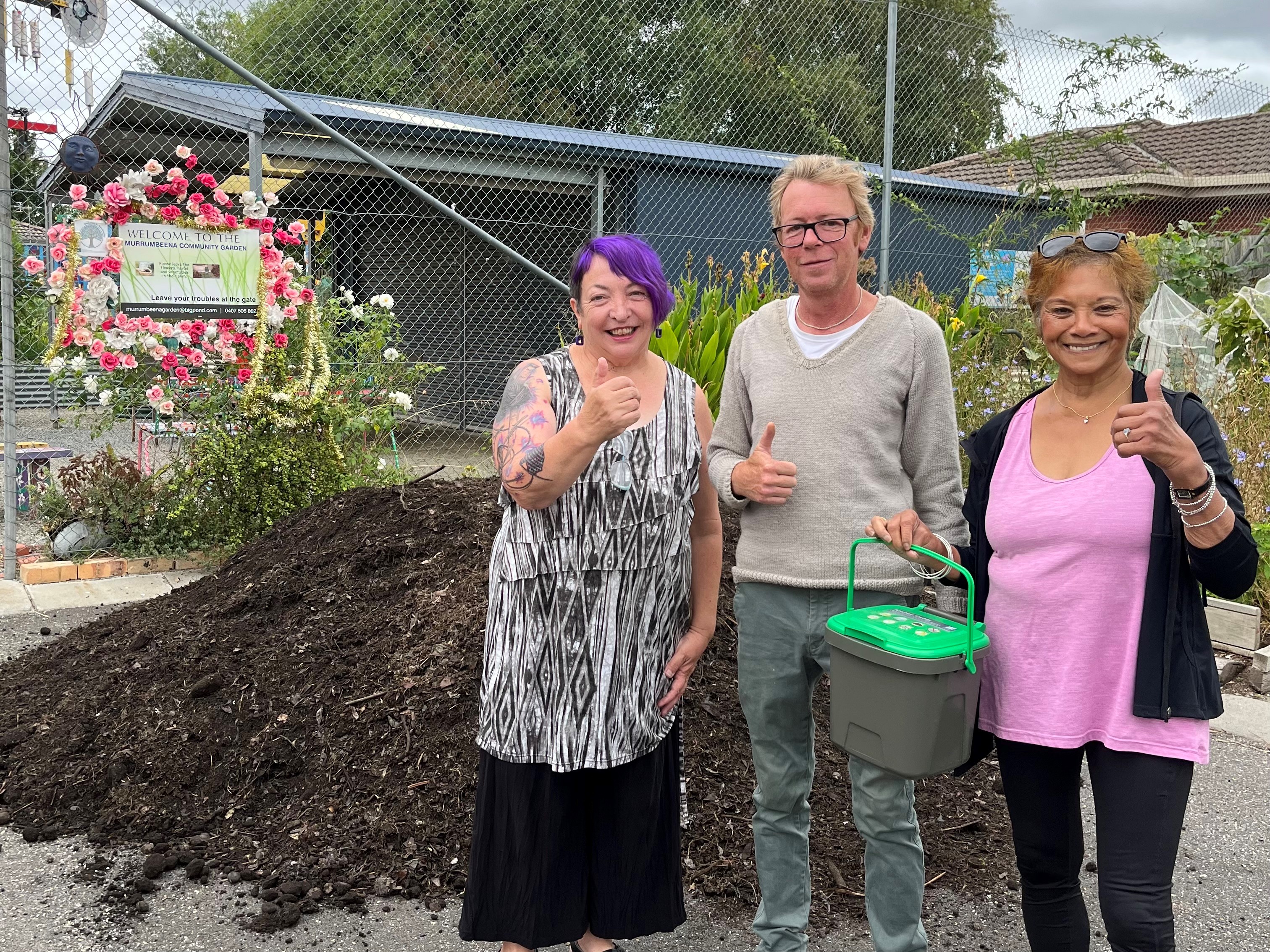
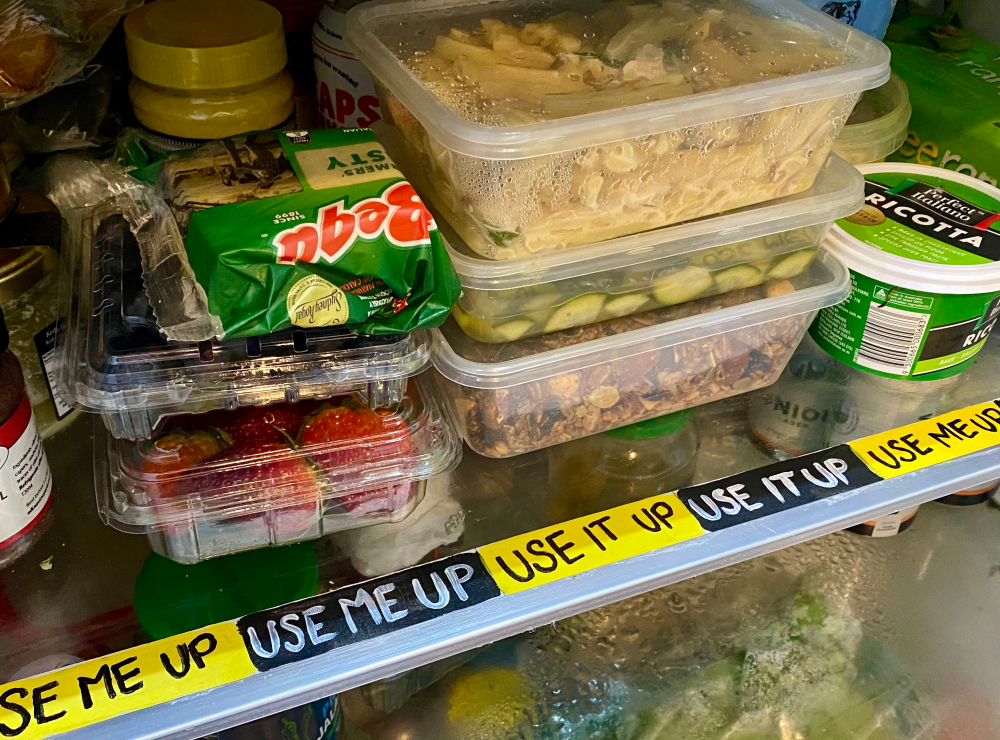
1. Reduce food waste
Reduce your leftover food by meal planning and using up what you've already got at home. By using everything you buy, you’ll reduce your food bills too!
- Learn how to store fruit and veggies so they stay fresh for longer with this A-Z guide for storing fresh produce.
- Make a ‘use it up’ shelf so there is a dedicated spot in the fridge and pantry to make it easy to see what needs eating up.
- Rescue unsold food from local cafes, bakeries, shops and restaurants through the Too Good To Go app.
- Write a list and double check what you've already got before food shopping.
- Set up a veggie patch. By growing your own herbs and fresh produce, you can use what you need and throw away less. For example, you can avoid buying a bunch of basil when you only need a few leaves. Watch our video tutorial and get started at home.
- Grow food locally at one of our community gardens.
For more tips check out End Food Waste or Sustainability Victoria's How to save food guide.
2. Recycle or compost your food scraps
Put food scraps in your green bin and create compost for farms, parks and gardens.
- Use your Glen Eira green bin to recycle food and garden waste into compost.
- Need a green bin? You can order one by contacting us at mail@gleneira.vic.gov.au or call on 9524 3333.
- Collect a free kitchen caddy from our service desk at Glen Eira Town Hall, corner Hawthorn and Glen Eira Roads, Caulfield.
- Get a discounted home compost bin – keep food out of landfill and produce rich soil for your garden. Gardening Australia have great composting videos to help get started and learn more about making your own compost.
- Can't compost at home? Seek out neighbours, friends, or family who can recycle your food scraps for you. Connecting with other locals who need greenery for their chooks or home compost bins can mean your food scraps don’t go to waste.
3. Buy less and choose well
When we think of waste our first thought is often packaging or single-use items. But a lot of waste comes from clothing, appliances, electronics, furniture and other household items. A good rule of thumb is to buy less and choose well so your items last longer.
Before buying, ask yourself:
- Is there something I already have that I could use instead?
- Could I borrow this from family, friends or someone in a community group?
- Where will this item be in a year? Two years? Ten years?
- Have I checked what second-hand or rental options are available?
Tips:
- Search for items on buy, swap, sell platforms before buying new.
- Look in Local op shops – there's a range of wonderful op shops in Glen Eira to support before buying new.
- If you're online shopping, give yourself a 24 hour 'cooling off period' before buying.
4. Share and borrow
Save money and reduce clutter by borrowing instead of buying – you can borrow, rent or hire almost anything, from toys to camping gear to party supplies.
- Check if you can borrow something from your friends, family, neighbours and community.
- Toy libraries – try out our local Carnegie Toy Library and Moorabbin Area Toy Library.
- Party Kit Network – reduce waste at your next party by borrowing a reusable kit.
- Checkout My Shed – borrow tools, tents, bikes, surfboards, lawnmowers, appliances.
- Elwood Kitchen Library – borrow party packs and a huge range of kitchen equipment.
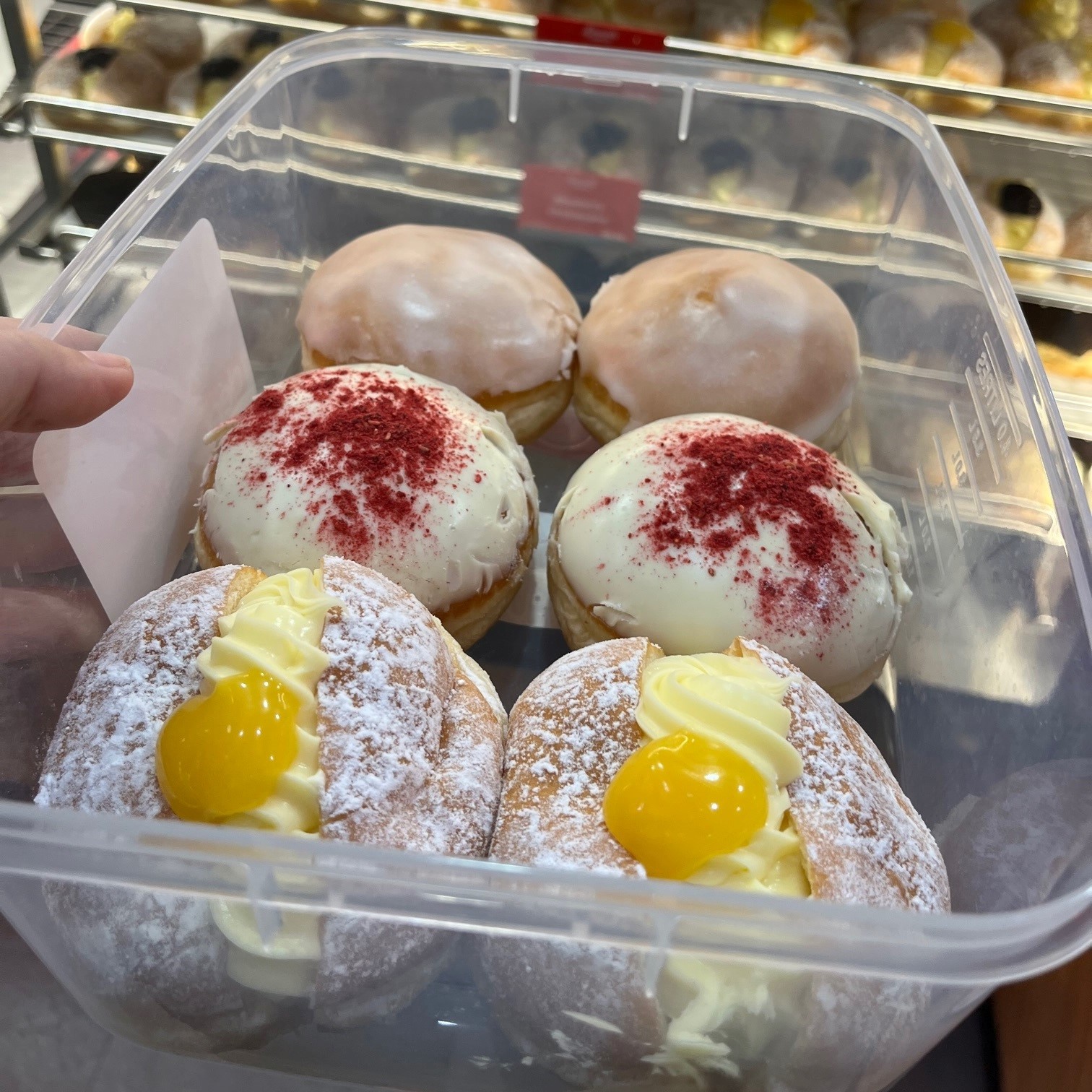
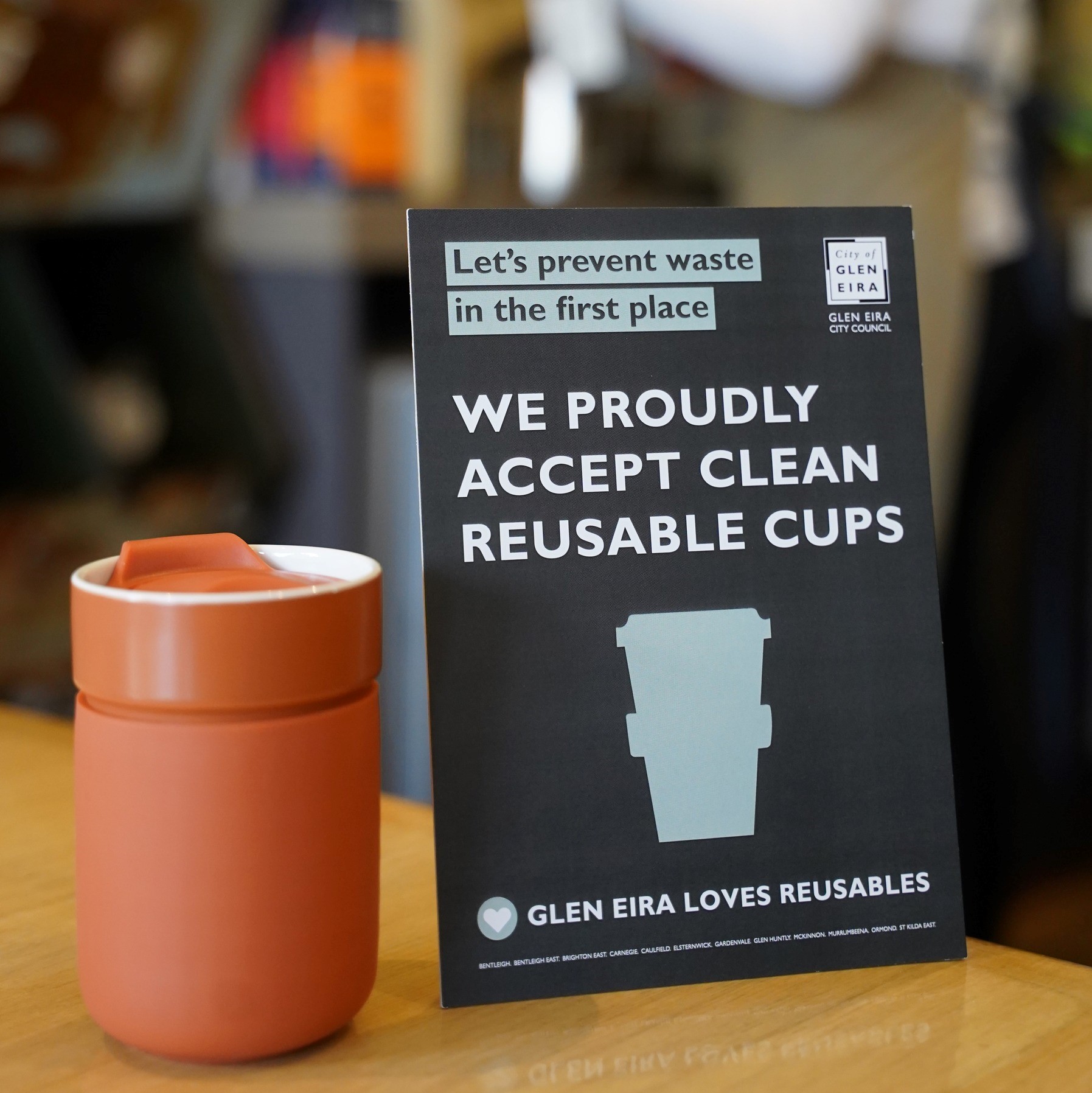
5. Replace single-use with reusables
Wherever we can, avoid single-use items by switching to reusable, refillable and washable options.
- Bring reusable items such as cups, containers, cutlery and straws when you're going to get takeaway.
- Keep some clean reusables in your bag, car or by the door to help you remember them.
- Use reusable bags when shopping for anything, not just for groceries.
- Try out a local low-waste or bulk-refill food store, they often have discounts if you bring in your own containers too!
- Give modern reusable nappies and sanitary products a go.
- Get a free BYO reusable cup sign – cafes, restaurants, canteens and sports clubs can contact us for a free countertop sign to encourage reuse or download posters.
For more tips about switching to reusables, check out Plastic Free July and Sustainability Victoria.
6. Repair and refurbish
Before getting rid of a damaged item, try repairing it first. You can save money, fight waste and support local repair services!
- Check out St Kilda Repair Café – volunteer fixers and menders offer their time and skills to help make possible repairs free of charge.
- Look for local repair services – support local services that mend and repair clothes, shoes, watches, furniture and more.
- Refurbish furniture instead of replacing - unfortunately, a lot of valuable materials and resources get thrown out in furniture. Check out local refurbishing services in Glen Eira to give your piece a new life instead of sending it to landfill.
For more tips and resources check out Zero Waste Victoria.
7. Rehome and shop second hand
Rehome clothes, furniture, shoes, bags and toys! It's always best to keep something in our local community or area, before donating to charities that send items overseas.
- Buy Nothing Groups – find your local group to swap and rehome items in your area.
- Local op shops – there's a range of wonderful op shops in Glen Eira. Ensure you're donating items that are in good condition and when they're accepting donations.
- List items on buy, swap, sell platforms for local reuse.
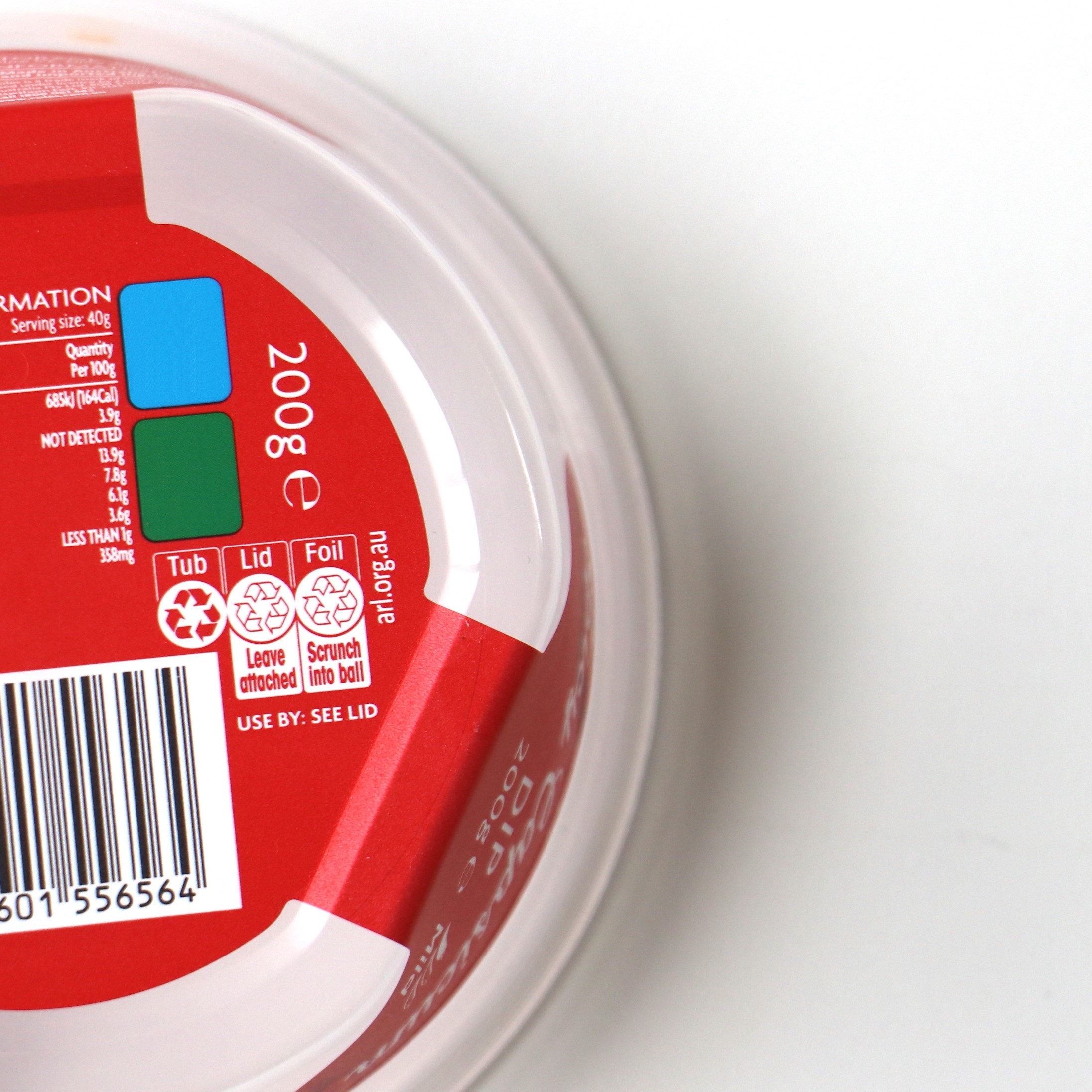
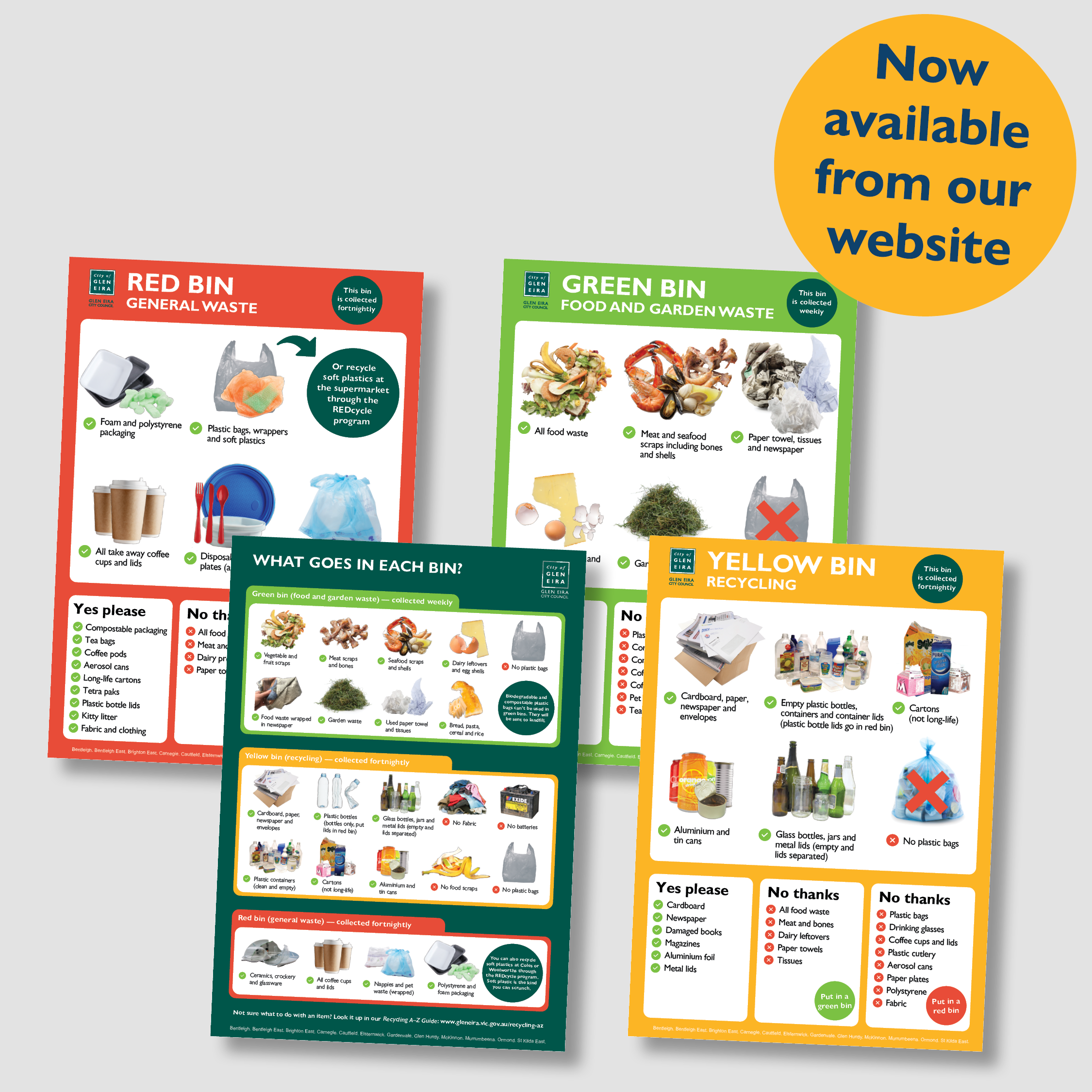
8. Double check you're recycling right
After we reduce and reuse, it's important to extend the life of materials by recycling.
- Double check which bin to use or if there's a specialist recycling option by searching an item on our A-Z Recycling Guide.
- Print out a poster for the fridge and view our waste services guides on our Recycling resources webpage.
- Check for specialist recycling programs. Some things can't be recycled through the kerbside bin system but can be taken elsewhere to go through a specialist process. Search an item on our A-Z Recycling Guide.
- Drop off batteries, phones, cords and small electronic waste for recycling at our e-waste recycling stations.
- Keep your recycling loose, don't put it in plastic bags.
- Empty food and drink out of containers before putting in the recycling bin.
9. Learn about recycling labels
There's lots of different recycling and composting labels out there, here's what you need to know:
Look for the Australasian Recycling Label (ARL) on packaging
- The Australasian Recycling Label (ARL) is an evidenced-based recycling label to help you know if packaging can be recycled or not.
- The ARL shows you what to do with mixed packaging and specifies how to best dispose of each part.
- Learn more about reading the labels on the ARL website or check out:
Put compostable packaging in the general waste bin, unless you have a home composting system
- Even commercially compostable or industrially compostable products (seedling symbol) can't go in the green bin - there are not any facilities in Victoria that accept Council waste and compostable packaging.
- Home compostable products (compost bin symbol) can go in your home composting system or worm farm. Check out our Home Composting Program for discounted products.
Numbers inside the triangle are not a recycling symbol
- The numbers inside the 'recycling' triangle on plastic items are not a recyclable label (confusing, we know!).
- These are actually Resin Identification Codes that show the type of plastic the item is made of.
- Instead of looking at these numbers, check our guidelines for what items go in each bin or look for the ARL.
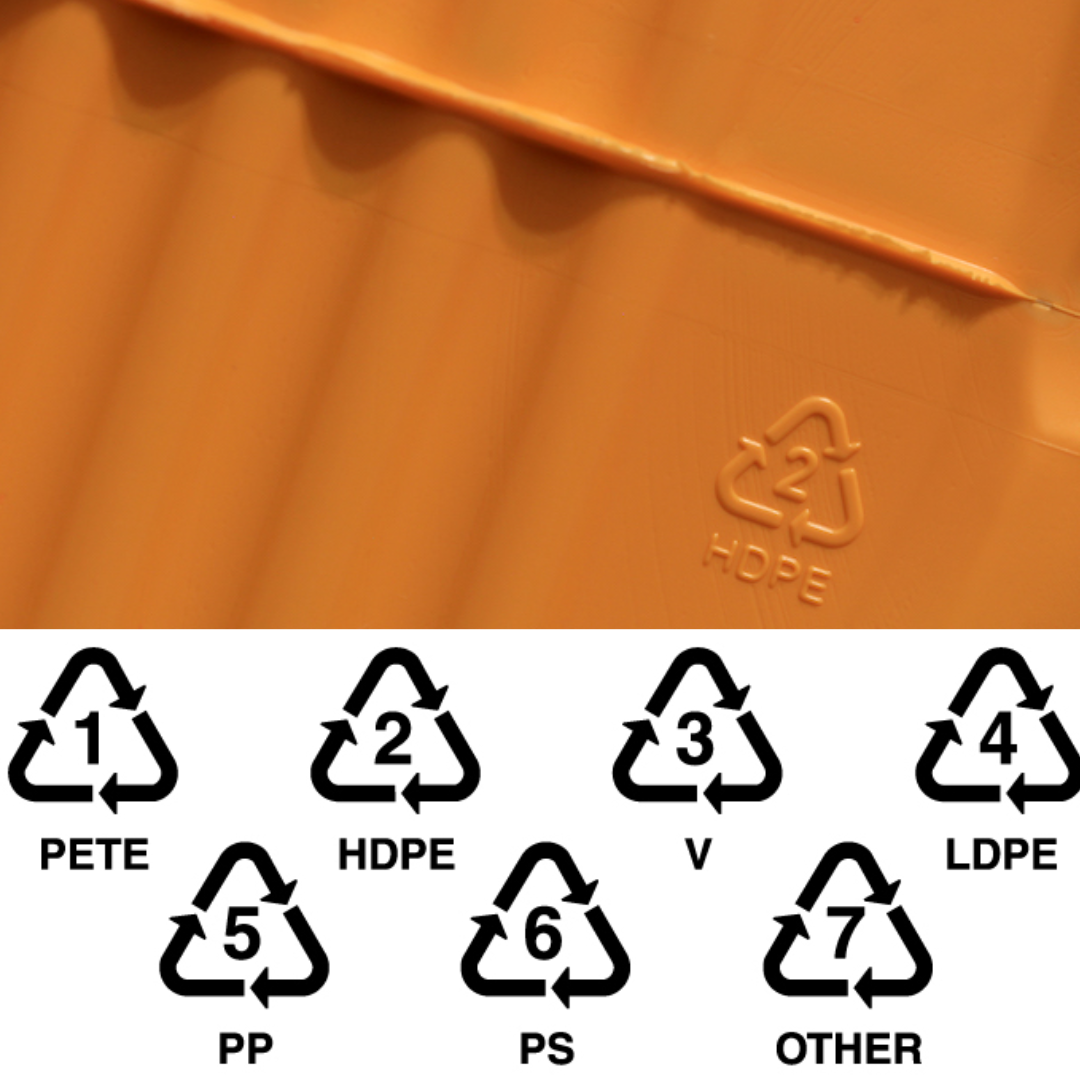
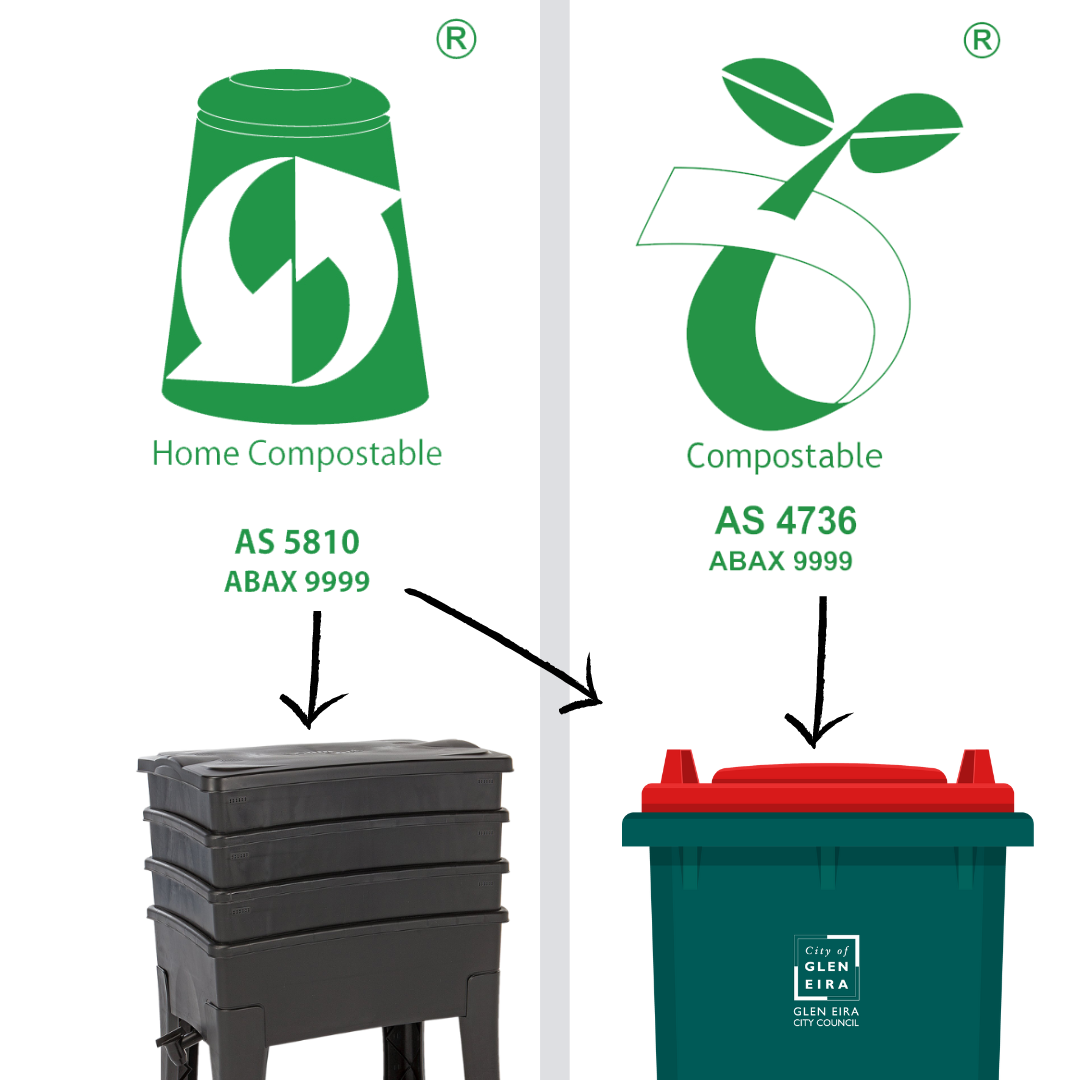
10. Beware of greenwashing
Greenwashing is when a product is marketed to appear more environmentally friendly than it is. Here's some terms to look out for:
- "Biodegradable" - biodegradable simply means something will break apart eventually but not within a given timeframe. Breaking apart doesn't mean that it is going away, it means it is fragmenting into smaller pieces. For example, if plastic that is biodegradable enters waterways it doesn't go away, it just fragments into smaller pieces.
- Vague adjectives such as "conscious", "eco", "green", "sustainable" - terms like these can be used with no evidence or certification behind them. It's similar to a brand describing their product as "the best" or "high-quality". It could be true that it is high-quality, but it also doesn't have any evidence behind the claim.
30 days of actions
Challenge yourself to try something new and create a new sustainable habit. Check out our 30 days of actions exploring ways we can all reduce, reuse, recycle — circular economy style! You don't have to do everything, just pick one or two actions you'd like to try!
Download a copy of our 30 days of actions calendar.
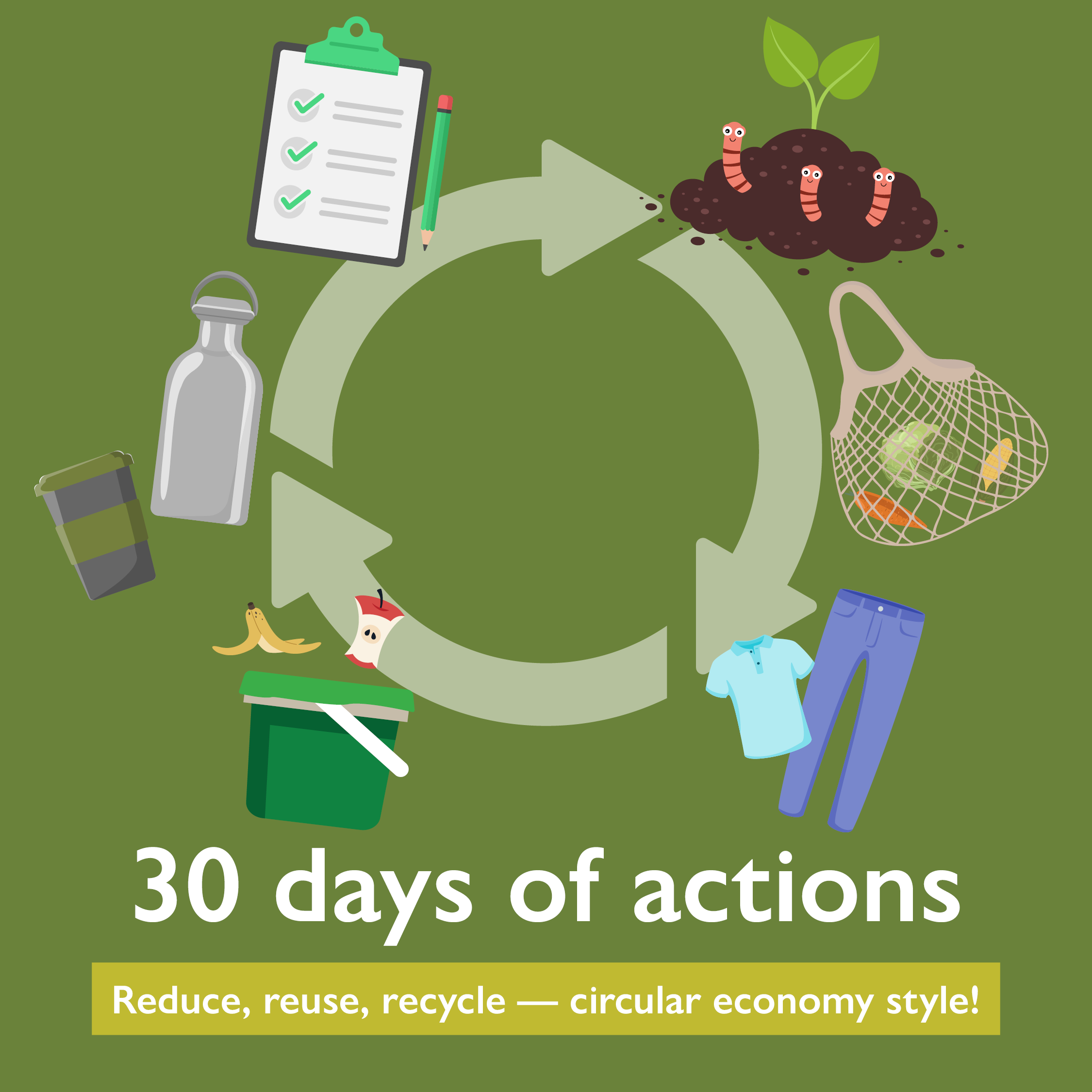
- See what actions you’re already taking and think about what else you could try
- Write a list before food shopping
- Watch a video about circular economy
- Use what we have before buying
- Swap fresh produce with others
- BYO containers for food
- Borrow books from a library
- BYO reusable produce bags
- Repair before replacing
- Make a meal from leftover ingredients
- Sell pre-loved items
- Choose good quality things made to last
- BYO cup or bottle
- Keep recycling loose, not bagged
- Look for recyclable packaging
- Swap single-use for reusable
- Set up a worm farm or home compost
- Shop second hand before new
- Use what we have before buying
- Refurbish furniture
- Give away hand-me-downs to friends or family
- Mend clothes
- Rehome things in good condition
- Recycle broken electronics at an e-waste drop-off point
- Find local produce at a farmers market
- Store food so it lasts longer
- Recycle food scraps in the green bin to create compost, not landfill
- Borrow from a Toy Library
- Avoid impulse purchases
- Celebrate wins and progress
Creating a circular Glen Eira
Council is leading our community’s transition to a circular economy, where resources are kept in use for longer. Last year we adopted the Glen Eira Circular Economy Plan 2022-2026, one of the first of its kind in Australia. To read the plan and learn more about what we’re doing to help our community, visit our Circular economy webpage.
In Glen Eira, our community has achieved record levels of recycling – with 60 per cent of waste being composted or recycled.
Since introducing the weekly green bin service, more of us have been recycling leftover food than ever before. Thanks to our community’s efforts, the majority of our waste is now saved from landfill.
